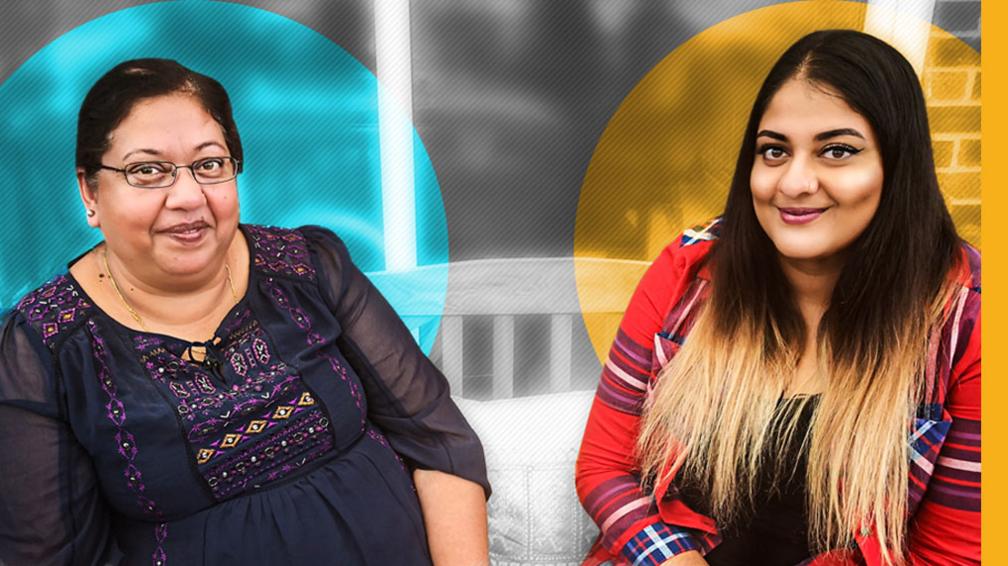'You have to prove your faith when you're dating as a black Muslim'
- Published
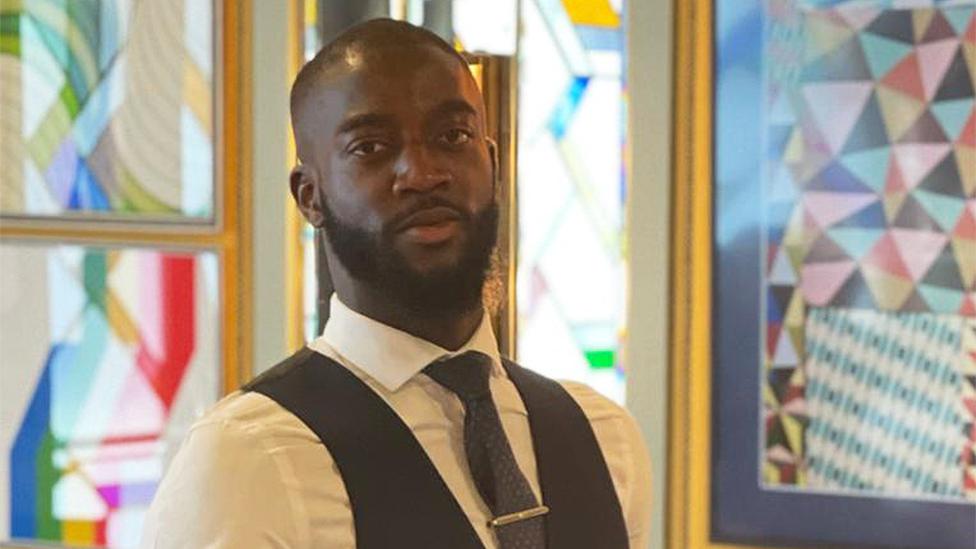
"I've had people say you're a great guy, perfect for my sister but you're black. And I feel like… woah."
For Kha'llum Shabbaz, his race has caused issues dating as a Muslim in the UK.
"On one side when it comes to religion, you're Muslim but black. But on the other side, when it comes to culture, you're black or you're Muslim. So where do you win?" the 28-year-old tells Radio 1 Newsbeat.
October is Black History Month, and he feels black Muslims can be forgotten in events and celebrations.
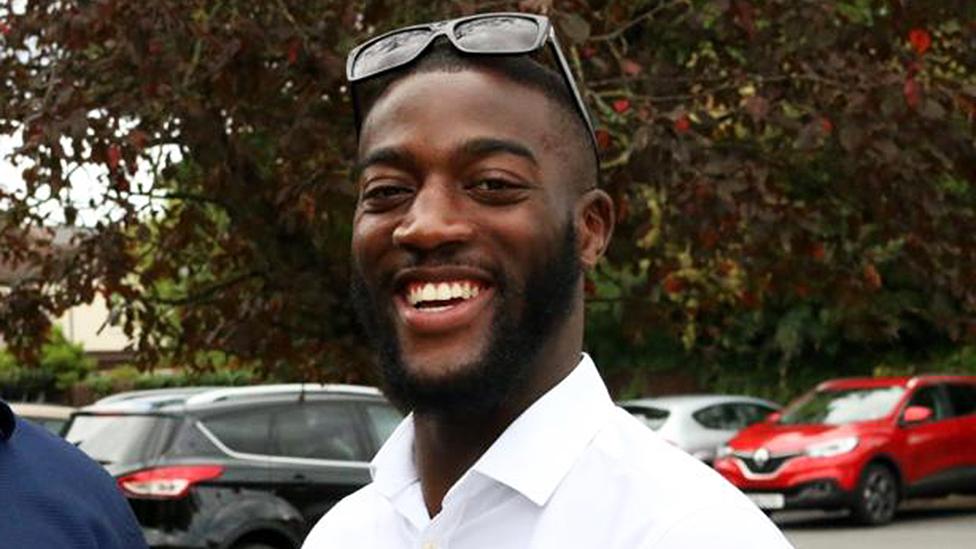
Kha'llum was born a Muslim and feels people look at him differently because of his race
Kha'llum, from Birmingham, England, senses the tension when it's time to meet a family member of someone he likes.
And his experiences mean he's starting to second guess whether he should look for someone outside of his race.
"It's also left me a little bit stuck, that maybe I shouldn't get married just yet."
"What if I dated a black, Muslim or white boy?"
And he's not alone.
A survey of over 400 users by Muzmatch, one of the world's biggest Muslim dating apps, has found 74% of its black members felt that race affected the matches they got.
Issues such as fetishization, discrimination and colourism were outlined, with some black members feeling that they were not represented in the online dating space.
For 31-year-old Kaya, she relates to those issues as a black Muslim woman in the dating world.
"It's not always done intentionally, but I've found there are a lot of men that say things like 'you look very exotic' and that they'd love to have a black wife and brown babies."
"It becomes tokenism and is not actually a compliment to anybody."
She feels there are some cultures which discriminate against black Muslims.
"One time someone told me his preference was to date in his race and didn't speak to me further. Everyone's entitled to their preferences, but it does hurt."
'Performing as a Muslim'
The experiences Kha'llum and Kaya have had in dating mirror what things can be like in wider society for black Muslims.
Kha'llum, who was born a Muslim, says people "tend to look at me in another way", and he often gets asked when he converted to Islam.
Zainab Hassan, a makeup influencer, feels like "you have to perform to prove you're Muslim" as a black person, which isn't the case for others.
"Your environment makes a big difference because when I'm in Nigeria, being black and Muslim is just what everybody is. I feel like since I started wearing my hijab, I'm visibly Muslim," the 27-year-old from Manchester says.
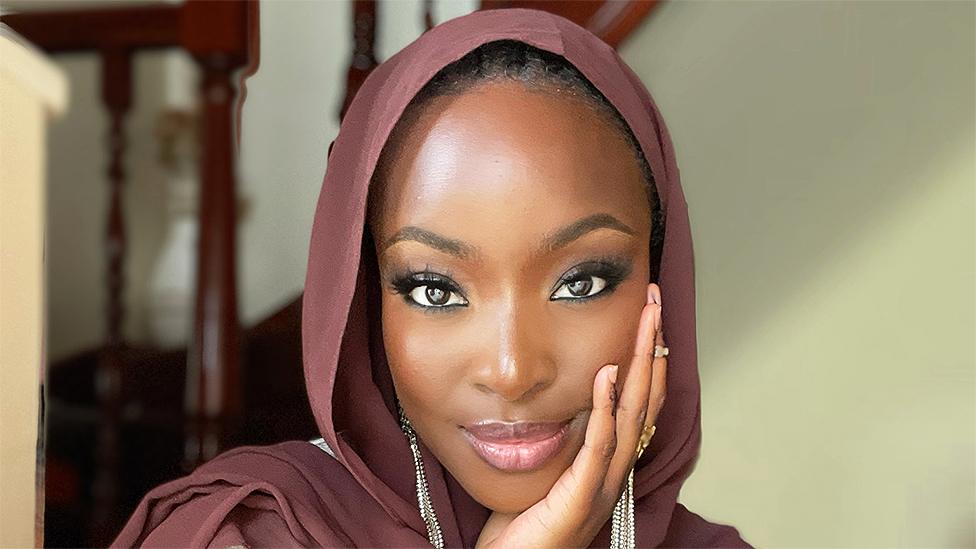
Zainab says: "I feel like there are some situations where the microaggressions start to really affect you"
Zainab says there is "an anti-blackness" within some Muslim communities.
"If you do something wrong, it's like 'of course she's only a black Muslim', it's expected."
Kaya is a convert to Islam and is sad such discrimination exists, saying her devotion to Islam is no less than those born into the faith.
"There are problems coming from a different culture. There are certain expectations that individuals and families have that aren't Islamic, but cultural."
She says her ex-husband's family caused issues because they were "not happy with the fact he married a black woman, but I couldn't hide that I was black".
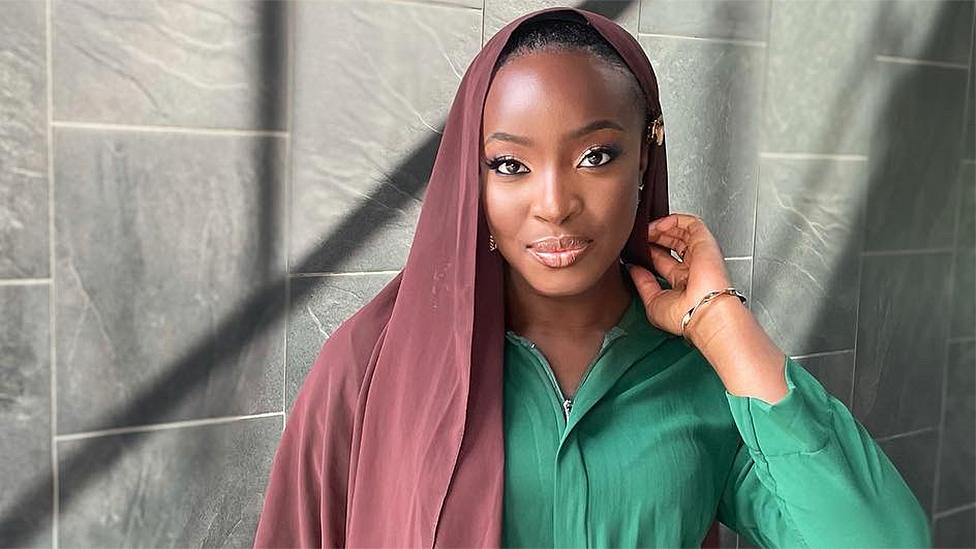
Zainab has experienced being part of the only black family at a mosque, feeling quite isolated "and visibly obvious I don't fit in"
Since the Black Lives Matter protests after the death of George Floyd, Zainab feels there's been a slight change.
"I think the whole movement, even the timing of it, being at home with parents sitting down has made a difference."
"It's too soon to say everything has changed, but from the conversations I've been seeing, even the pages I follow, I feel there's more inclusion of black Muslims now."
For proper change, Kha'llum feels spaces for only black Muslims are really important.
"Everyone needs to feel like they fit in, and it's good to feel like you're not alone in that bubble," he adds.
Buki wants her art to start conversations about what it’s like to be a black, Muslim woman
Kaya thinks there needs to be more representation to make Muslim spaces more inclusive for Black Muslims.
"You don't see a lot of black Muslims leading classes, as imams."
"If you don't see someone that looks and resembles yourself, you are always going to feel outcasted in society and never feel included."
'We can all exist together'
Zainab feels Muslim organisations could be doing more, but it's also the responsibility of people in society.
And she thinks having black Muslim-only spaces doesn't have to create division.
"When you feel like you've been denied that space before, it's important for it to be created."
"We can all exist together without stripping us of our identity. Our black identity doesn't have to go, nor does being Muslim," she adds.


Follow Newsbeat on Instagram, external, Facebook, external, Twitter, external and YouTube, external.
Listen to Newsbeat live at 12:45 and 17:45 weekdays - or listen back here.
- Published25 March 2019
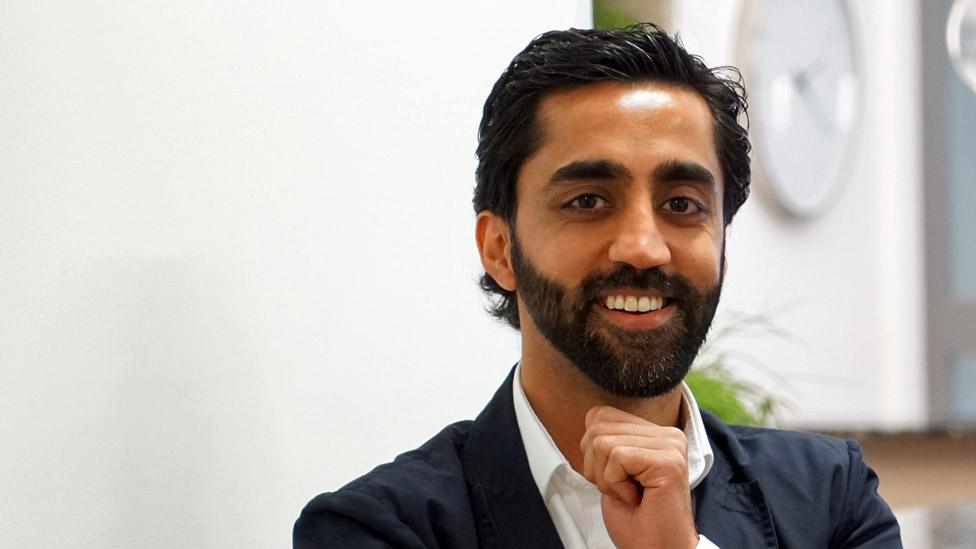
- Published24 October 2019
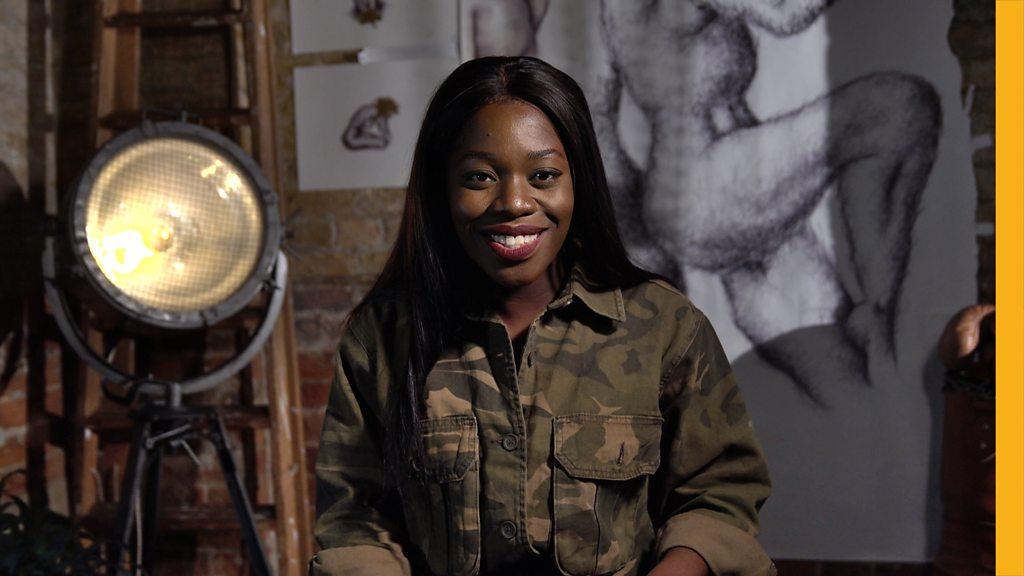
- Published22 August 2018
